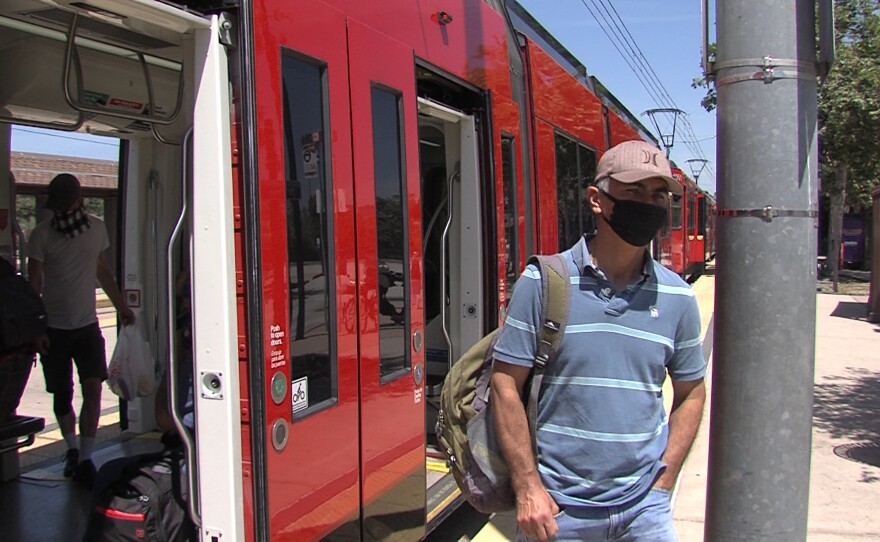President Donald Trump shined a brief spotlight on local transit agency Metropolitan Transit System Wednesday when he used Twitter to acknowledge the nearly $220 million the agency would receive in federal Coronavirus Aid, Relief, and Economic Security Act funding.
Trump tweeted, "I am sending $219.9M to the San Diego area in CARES Act funding for @sdmts . These funds from @USDOT will be CRITICAL for economic recovery. We have to keep people moving safely and efficiently!"
I am sending $219.9M to the San Diego area in CARES Act funding for @sdmts. These funds from @USDOT will be CRITICAL for economic recovery. We have to keep people moving safely and efficiently!
— Donald J. Trump (@realDonaldTrump) June 10, 2020
He has used Twitter to highlight many beneficiaries of the CARES Act money in the last several days, including other transportation agencies. Rob Schupp, spokesman for MTS, said the funding was not new, as the agency has known about the CARES Act funding for a month.
"When the CARES Act was passed, it carved out something like $25 billion for transit agencies across the country," he said. "We've prepared for that $219.9 million as part of our budget going forward."
MTS could put the money to good use, Schupp said, noting the steep drop in ridership and associated revenues since the COVID-19 pandemic began.
The agency's fiscal year ends on June 30, and Schupp said MTS projects a revenue drop of $30.7 million. For Fiscal Year 2021, the picture is gloomier, with $102 million in lost revenue expected.
"The money is designed to help us recover," he said. "We're classified as an essential service and we've helped transport essential workers to their jobs during this crisis."
Schupp said he doesn't know when the agency can expect to recover fully from the precipitous drop in ridership numbers, but that it will take several years.
A report released in April by Circulate San Diego found that nearly 16,000 essential workers in the region commute to work every day by public transportation, underscoring the importance of transit during the COVID-19 pandemic.
According to the nonprofit transit advocacy group, nearly 25% of the region's essential workers do not own a vehicle, and 30% of San Diego County's highway maintenance workers rely on public transit every day.
MTS buses are carrying fewer than a third of the usual ridership and the trolley is carrying 60% fewer riders than usual. The NCTD is currently carrying 27% of its usual riders.
The pandemic also led to a postponement of MTS plans for a November ballot measure to fund an expansion of city transit projects. Plans for placing a half-cent sales tax on the November 2020 ballot to fund expanded transit service and a wide range of other projects were shelved.





